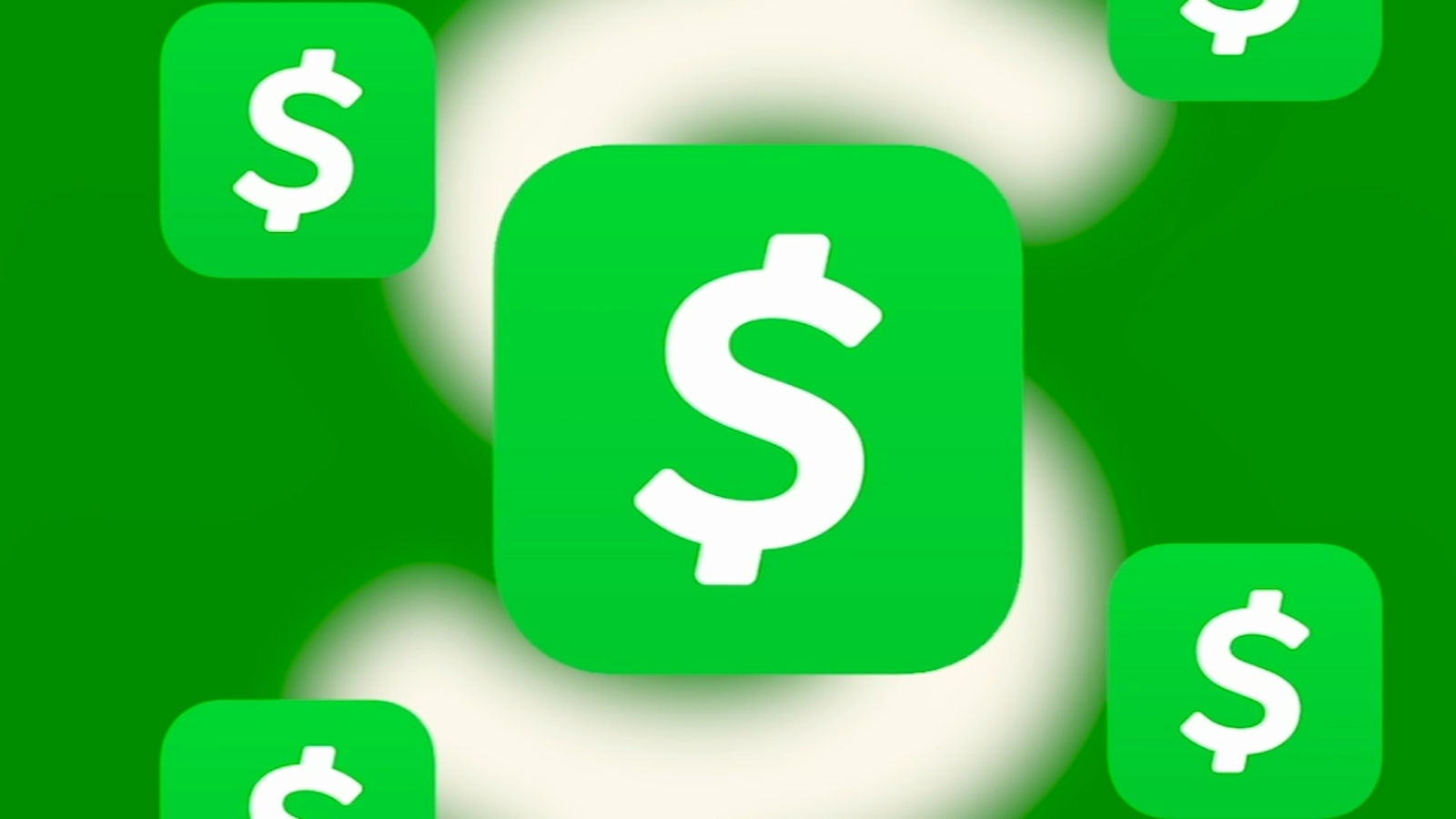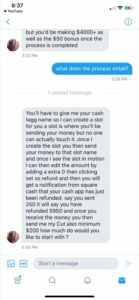
This article is targeted at Cash App users who have been scammed. We all know how frustrating it can be to get scammed and the emotional toll it can take on a person. I do not advocate revenge or retaliation in any form, only peaceful protest against the scammer by flagging them as described below. This is a guide on how to open a dispute with the cash app so you may get your money back from a scamming incident.
When you send money using a cash app there are three people involved: You, the sender, the receiver, and Cash App itself as an intermediary. The sender has no control over his/her money once they hit “send” and neither does Cash App until both parties have signed for their respective funds. This is an important point that we will come back to in a minute.

The Different Cash App Scams and How to Avoid Them:
If someone asks you to send them money and they say, “I forgot my phone number,” or something like that, and they want your information instead, it’s very likely this is a scammer who racked up your cash app balance with fake services. You may even know the scammer; he/she could be a friend of yours (even if only on Facebook).
But don’t make excuses for others doing wrong—in this case pretending to forget their mobile phone numbers. Be very careful when asked to give out personal information such as social security numbers, driver license numbers, and the like because that info can be used by identity thieves to ruin someone’s life.
Scams involving cash flipping and clearance fees
Scammers will claim to be able to “flip” your money, offering to increase it provided you pay them money first (this is frequently referred to as a “clearing fee” or “account verification“). These con artists will receive your money but never give you anything in exchange. It is a fraud if someone promises you free money in exchange for transferring the money. There are no genuine firms that “flip money.” They are almost certainly all scams.
Scam of Payment Claiming
Scammers may sometimes persuade you to give money to them in order to “claim” a payout that you “deserve.” These payment-claiming efforts are invariably fraudulent. Never transfer money to another individual with the expectation of receiving a higher amount in return. As with Cash Flipping, if someone promises you free money in exchange for giving them money, it is most certainly a fraud.
Moreover, Cash App would never, ever solicit a customer for money. It is not possible to “claim” a payment by paying money to Cash App.
Scam on Puppy/Pet Deposits
Scammers may pretend to have an impending litter of puppies or kittens and would ask for a deposit to reserve one of the pups or kittens. These con artists frequently post bogus images, refuse to interact over the phone, and claim to sell purebred, highly sought-after animals for a pittance.
Because Cash App cannot guarantee a return if you do not get what you paid for, it is better to transfer money via Cash App after seeing the buyer in person and receiving whatever has been promised to you.
Do not transfer money to someone you do not know who promises to provide something to you at a later date. Always check those to whom you transfer money and pay them after you have received the item you ordered.
Rental Deposit Scams in Apartments and Homes
Scammers sometimes claim a product or service without ever giving evidence that it exists. This includes promising to locate you a cheap apartment or providing you an apartment at a far cheaper cost than usual, but demanding you to submit them a deposit beforehand (e.g., before touring the prospective rental).
Never pay money to someone you don’t know who promises to give something to you later, such as an apartment rental. It’s probably a fraud if you can’t verify who someone is or the veracity of what they’re selling.
How did this happen:
The scammer created a fake account and probably used Facebook to get the phone numbers of his/her victims. Even if you or your friends don’t use social media or have public profiles, the scammer may have gotten lucky and guessed your number by calling all potential victims until someone answered their phone with a friendly “hello” on the other end—then recorded everyone else’s contact info on their new Cash App account(s).
If any of your contacts use the same email address for Cash App as they do for Facebook, then they might be in trouble too. That makes it very hard to discern who is real and who is not: if someone asks for money using a cash app you have no way of knowing if that is the real person or an imposter.
On Facebook there are many scams like this; someone will reach out to you for money or use your information to pretend they are you (they’ll even send friends requests pretending to be you). Just because scammers may reach out to you doesn’t mean it isn’t a scam—just recognize what’s happening and protect yourself. That’s all I’m saying here.
Why Should You Care?
Because Cash App users can get their money back if they act quickly after getting scammed; otherwise, the cash app money becomes unrecoverable by design. If your friend gave his/her information away on the cash app, then his/her account should be immediately reported as “missing” so the victim can get his/her money back, or have it returned to its rightful owner.
How to Identify and Avoid Scams in Order to Keep Your Money Safe
- When using Cash App to send money, we highly advise you to:
- Only transmit funds to persons you know and trust.
- Before sending any payment, verify and double-check all recipient information to ensure you are sending money to the proper individual.
- Check the other person’s profile to see whether it’s the right person.
- Don’t transfer money to anyone who promises you something in the future (like free money in return, for example)
Follow these procedures to report a probable fraudulent payment:
- In the top right corner, tap the profile symbol.
- Select Help.
- Select Report a Payment Problem.
- Choose a payment method and follow the on-screen instructions.
- Whereas if fraud is related to a possible scam account rather than a single payment, take the following procedures to report and ban the potential scam account:
To access a profile, use the Cash App and touch on a Customer Avatar. You may also look for a profile by providing a name, a $Cashtag, a phone number, or an email address.
- Scroll down to the bottom of the profile and select ‘Report‘ or ‘Block.’
- Choose one of the alternatives and go to the following stages.
- You may also reach out to our Cash Support staff at https://cash.app/contact.
How To Get Your Money Back:
To get your money back from Cash App you need to report missing account(s) and file a claim which will prompt an investigation into whether or not the account(s) was (were) hijacked and by whom.
This process takes about 2-3 business days from start to finish so it’s important to do this right away before someone else uses your friends’ information against them—or worse, steal their identity which could leave them without any of their bank accounts or credit cards.
If you’ve been scammed by a cash app the best thing to do is file a claim and report your account(s) as missing so you can get your money back.
Contact Cash App:
To file a claim or find out more information about what to do if someone uses the Cash app to scam you, contact them via email https://cash.app/contact. Be sure to let them know exactly what happened—be calm and concise when explaining the situation so they will help you with all due haste.
Get Immediate Response via social media platforms:
Instagram: @CashApp
Twitter: @CashApp
Tiktok: @CashApp
Twitch: twitch.tv/CashApp
Reddit: u/CashAppAndi
Facebook: SquareCash
Final Thoughts:
In the end, I’m more concerned about spreading awareness of this potential scam to anyone who might be eligible to get scammed. It’s hard for me to explain why at-risk users were targeted in a specific geographic region but one thing is clear: some users need to tighten up their security by paying closer attention when sending money on Cash App.





Leave a Reply